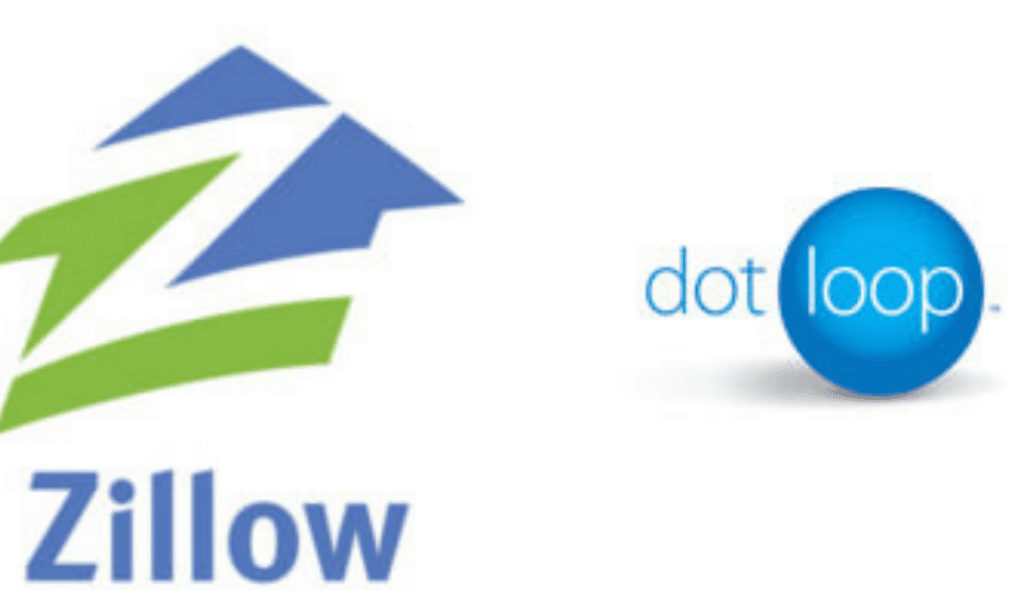DEAN SAYS . . .
____________________________________________________
At the end of the day, acquiring real-estate leads is not the challenge. That can be done in a variety of ways. What sets the bar for success in the long sales cycle of real-estate is the ability to convert those leads to sales, and a CUSTOMER RELATIONSHIP MANAGER (CRM) play a critical part in a successful conversion.
Real estate sales differ significantly from most other sales processes. While many transactions are completed relatively quickly, real estate sales can take up to 18 months to reach completion. This extended sales cycle duration carries significant implications for real estate leads, including how they are acquired and how transactions are conducted.
THE REAL-ESTATE SALES CYCLE
FOR A BUYER
______________________________________________________
Let’s explore the process of home selling from a personalized and informative perspective, using Jack and Jill as an example. They are contemplating the sale of their home, engaging in discussions during dinner or while enjoying television. They envision the excitement of starting anew in a different location.
At this early stage of their sales cycle, Jack and Jill may take one of two initial steps. Firstly, they might seek to determine the current value of their home. Alternatively, they could begin exploring potential new listings in the desired area. It is worth noting that while this aspect of the home buying process may eventually transition to virtual reality, for now, it predominantly occurs online.
In their quest, Jack and Jill turn to real estate websites like Zillow or the website of their preferred local real estate broker to sign up for notifications regarding the latest listings. They might even utilize tools like Zestimate (if applicable) to get an approximate value for their current property. For a more accurate assessment, they may explore the “get your home’s value” feature on a local real estate broker’s website.
During these early stages, Jack and Jill have likely transformed into real estate leads. However, it is crucial to note that they are not yet prepared to commit to a listing agreement or embark on house-hunting excursions with a real estate agent. Therefore, the resounding answer to both those questions is a “no.”
It is important to understand that this progression does not imply that Jack and Jill are not legitimate home sellers or potential buyers. This is simply how the process unfolds from the consumer’s perspective. However, real estate agents who receive leads like Jill requesting a home valuation may perceive the lack of a returned phone call as a sign of disinterest and categorize her as a “junk lead.” This breakdown in the lead generation system within the real estate industry can occur at this juncture.
No Shortage of Leads—BUT There’s a Shortage of Conversions
 If you’re a real-estate agent these days, then you have hundreds, maybe thousands, of options for acquiring real-estate leads. With the average home buyer becoming a “lead” for multiple real-estate agents during their sales cycle, there’s no shortage of real-estate leads, but there’s a shortage of conversions.
If you’re a real-estate agent these days, then you have hundreds, maybe thousands, of options for acquiring real-estate leads. With the average home buyer becoming a “lead” for multiple real-estate agents during their sales cycle, there’s no shortage of real-estate leads, but there’s a shortage of conversions.
The challenge in the real-estate industry is incubating those leads until they get farther down the sales cycle. Many agents, whether they are dealing with buyer leads or seller leads, give up quickly if they don’t get an immediate response from those leads.
They write them off as “junk leads.” What should happen is to incubate those potential home buyers and sellers as they progress through their long sales cycle.
As they get closer to the end of the cycle, where they NEED to deal directly with a real-estate agent, they usually do one of two things: either choose an agent who has kept in touch with them or become a new lead with someone else and act.
Using a CRM
One of the most common ways to keep in touch with a potential lead as they move down the sales cycle is to use a CRM. CRMs are used in just about every sales vertical. At the most basic level, a CRM will hold your database of leads with some level of differentiation (past clients, potential buyers, potential sellers, etc.) and use drip e-mails to stay in touch.
Some of the more advanced CRMs will scrape leads from multiple sources, give a variety of ways to “touch” the client over time and follow the client through their sales cycle; others will even call or text your client. In addition to the major nonindustry specific CRMs on the market, such as Salesforce, Zoho and SugarCRM, they have many CRMs specific to real-estate, such as Follow up Boss, Top Producer and Brivity. Each CRM offers a similar set of tools, but with a different take, and some are more robust than others. Some automate much more of the process while others rely more on human intervention.
Read Our Article on Does Your Real-Estate Website Include SEO?
First, many of the standalone CRMs can be expensive and require a lot of setup work, which may put them out of reach for an individual agent. Second, with a good CRM being such an important part of real-estate marketing today, many real-estate website companies provide their own CRM with their web product.
An example of these types of companies are KV Core, Real Geek or Sierra Interactive. Although CRMs built into your website provider can create an elevated level of synergy, many of the websites themselves can lack the customization as compared to a “built from scratch” site.
Last, many national franchises and larger independent real-estate brokers provide a CRM to agents whom they are associated with. Although broker/franchise provided CRMs are usually the most affordable (sometimes even free) historically, these lack many of the features of the most robust standalone CRMs.
Which one is the best? That really depends on the specifics of your situation, how much money you want to spend, and your technical acumen for setting up a CRM. Options are numerous here, but to be successful in real-estate today, NOT having a CRM is NOT AN OPTION.
Video Provided By Chris Donaldson of Donaldson Education
Video taken from a free webinar from Chris Talks
Real-Estate Marketing Options
 “They” say that after four moves in a game of chess, the board can be in 197,472 possible positions. So it is in the case of real-estate marketing ideas. With the mind–boggling number of possibilities for a website, organic SEO, Map Pack – Local SEO, lead generation, CRMs, and advertising verticals, it is no wonder that many REALTORS opt for their broker-provided website and incorporated CRM.
“They” say that after four moves in a game of chess, the board can be in 197,472 possible positions. So it is in the case of real-estate marketing ideas. With the mind–boggling number of possibilities for a website, organic SEO, Map Pack – Local SEO, lead generation, CRMs, and advertising verticals, it is no wonder that many REALTORS opt for their broker-provided website and incorporated CRM.
If you’re waiting for me to say that’s a terrible idea, then you’re wrong. Agents can have many reasons to opt for their broker set of tools and services:
- Are in the last quartile of their Carrier and not looking to reinvent themselves.
- Don’t want to learn.
- Are happy with their current income.
- Don’t have time to learn.
- Don’t have the technical acumen.
For these agents, their broker-provided tools and services can be a good option. For them, the other option is usually nothing, and that’s a really bad option. With the broker tool usually comes some level of support and recognition for using the service, and the cost is normally extremely low.
Real-Estate Website and CRM Combo
 We talked about this option above. If setting up a CRM or attempting to interface a CRM with a different website seems daunting, these options can be good worthwhile. The real-estate website and CRM combo option usually comes with a monthly recurring charge. They may also include add-ons for Facebook and Google Ad Words that is billed through them. Having one dashboard for both your website and CRM and having them fully “talking to each other” can substantially simplify things.
We talked about this option above. If setting up a CRM or attempting to interface a CRM with a different website seems daunting, these options can be good worthwhile. The real-estate website and CRM combo option usually comes with a monthly recurring charge. They may also include add-ons for Facebook and Google Ad Words that is billed through them. Having one dashboard for both your website and CRM and having them fully “talking to each other” can substantially simplify things.
In my experience, although many of these products have solid CRMs, the website side of the equation leaves a bit to be desired. They aren’t bad if you don’t want to spend a lot of time customizing a website, but if you have a unique design idea or insist on specific branding, these options may not be the best for you.
As a company that has deep roots in real-estate search engine optimization, my experience is that these are usually harder to rank on Google for real-estate keywords. Not saying it can’t be done, it just requires more time and effort to rank these types of sites as opposed to a custom WordPress real-estate website where you have total control. If you are interested in attempting to SEO your own site, you may want to read our REALTORS guide to SEO.
Standalone Non-Real-Estate-Specific CRMs
Many of the largest, most popular CRMs are really designed as enterprise solutions for companies like Microsoft or others that have ultra-powerful products designed to be integrated into the workflow of a large organization.
Many even integrate with the major account software solutions. This requires a ton of custom setup and is expensive. Although enterprise CRMs, such as Salesforce or Clear C2, can be a good solution for a large broker, they are not usually recommended for agents or real estate teams.
CRMs Designed for Real Estate
Real-estate specific CRMs are nice because many of them may include prewritten drip emails and the product has been tailored for the real-estate industry. Even though these CRMs have insight on what is needed from a REALTOR’S perspective, they can still require an intensive setup.
It is recommend that, even if the product includes cookie cutter emails, you should still write your own. Since your first contact with any potential client is generally the most important, you do not want anything going out that sounds sterile.
If you do choose this route, then make sure that the emails you send to your incubated real-estate leads have information about only real estate. Keep it simple. Gone are the days of the reminder to “Set Your Clocks Back One Hour Tonight!”
Read Our Article in Real-Estate SEO:Do Keywords Matter?
Think about it . . . when you see a Toyota commercial, it usually has something to do with an automobile, right? As a real-estate professional, why would anyone e-mail a client with “The Best Pumpkin Pie Recipe for Halloween!” when they should be sending useful information about the real-estate market or buying or selling a home?
The Full Custom Option for Real-Estate Marketing
If you’re interested in creating a real estate website specifically for lead generation and desire a high level of customization, choosing a custom-built website is often the preferred option. By building a website from scratch, you have complete control over its appearance and user experience, although this typically comes with higher initial costs. However, once established, your monthly recurring fees can be minimal or even nonexistent.
Opting for a custom real estate website also grants you greater control over important aspects such as the website’s URL structure and other search engine optimization (SEO) functions. This is particularly advantageous if you plan to target specific real estate keywords and aim to improve your website’s ranking in search engine results.
When taking the custom website route, it’s recommended to implement a standalone CRM (Customer Relationship Management) system. Integrating your CRM into the website ensures that newly generated leads are seamlessly added to specific ongoing campaigns. Although this integration may present initial challenges, it provides you with a high level of control over how everything functions together.
Concierge Service
Because most REALTORS spend the majority of their time assisting buyers and sellers with their real-estate needs, DEAN Knows has recently rolled out a Concierge Service for the capture and incubation of real-estate leads.
We feel this will augment our real-estate SEO services substantially. We have had tremendous success with our lead generation from our real-estate websites and social media campaigns, but up until now, the agent did all of the critical follow-up work, which turned the lead into a client. With our new Concierge Service, we now handle all aspects of real-estate technology:
- Website Development
- IDX Implementation
- SEO
- Social Media Marketing Campaigns
- Setup and Integration of CRM
- Lead follow up from capture to closing
Conclusion
In conclusion, the key to success in the real estate industry lies in converting leads to sales, which is particularly challenging due to the long sales cycle involved. A crucial tool for achieving this is a Customer Relationship Manager (CRM). Real estate sales differ significantly from other sales processes, often taking up to 18 months to complete. This extended duration impacts lead acquisition and transaction processes.
To illustrate the home-selling process, we examined the early stages of the sales cycle, where potential sellers like Jack and Jill explore home valuations and listings. At this point, they are real estate leads but not yet ready to commit to a listing agreement or work with an agent directly. However, it is essential to understand that these leads have the potential to become valuable clients as they progress through the sales cycle.
The challenge in the real estate industry lies not in generating leads but in nurturing and incubating them until they are ready to engage with an agent. Many agents give up too quickly if they don’t receive an immediate response, categorizing leads as “junk leads.” However, successful agents understand the importance of incubating leads throughout the sales cycle.
A CRM is a common tool used to stay in touch with potential leads as they progress through the sales cycle. These systems help manage lead databases, differentiate between different types of leads, and enable communication through drip emails or even calls and texts. Numerous CRM options exist, both non-industry specific and real estate-specific, each offering a set of tools and features with varying levels of automation and customization.
When considering a CRM, it’s essential to evaluate factors such as cost, setup requirements, and technical capabilities. Standalone CRMs can be expensive and require significant setup, while some real estate websites offer integrated CRMs, albeit with potentially limited customization options. National franchises and larger independent brokers often provide CRMs to their associated agents, although these may lack the features of robust standalone options.
Ultimately, the choice of CRM depends on individual circumstances and needs. However, in today’s real estate landscape, not having a CRM is simply not an option for agents looking to succeed. Combining a real estate website and CRM can simplify operations by centralizing both tools in one dashboard, although the website customization options might be limited.
It’s worth noting that real estate-specific CRMs are tailored for the industry, often including prewritten drip emails. However, customization is still crucial to ensure personalized and relevant communication with leads. The content shared should revolve around real estate topics rather than unrelated subjects, aligning with the client’s interests and needs.
For those seeking the highest level of customization and control, building a custom real estate website is an attractive option. Although it entails higher initial costs, it allows for complete control over the website’s design, user experience, and SEO functions. Integrating a standalone CRM into a custom website ensures seamless lead generation and management.
Lastly, DEAN Knows offers a Concierge Service that handles various aspects of real estate technology, including website development, IDX implementation, SEO, social media marketing campaigns, and CRM setup and integration. This service aims to enhance real estate SEO efforts and streamline lead capture and incubation, providing comprehensive support from lead generation to closing.
In conclusion, choosing the right CRM and website strategy, whether through standalone CRMs, integrated website and CRM options, or custom-built websites, is essential for successful real estate marketing and lead conversion. It’s crucial to consider individual needs, technical capabilities, and budget to find the optimal solution that aligns with business objectives and maximizes conversion rates.



